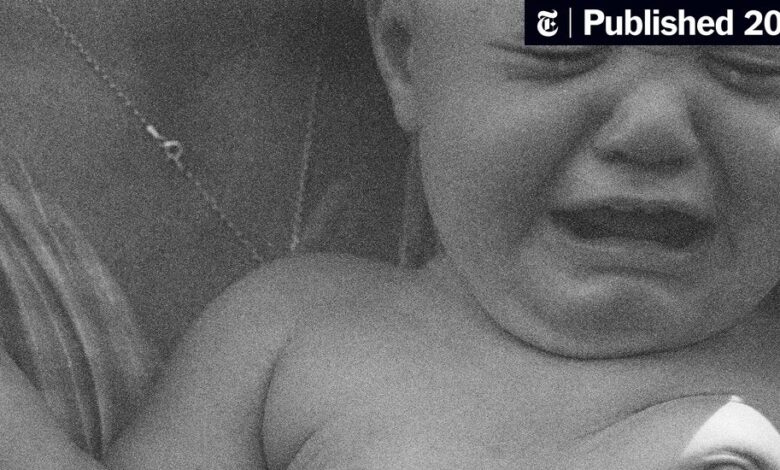Book Review: ‘My Work’ by Olga Ravn

MY WORK, by Olga Ravn. Translated by Sophia Hersi Smith and Jennifer Russell
Nothing can quite prepare a new mother for the first weeks. The arrival of a baby can feel like the detonation of an atomic bomb, sweeping away all traces of a formerly independent and unencumbered life.
This was the case for the Danish writer Olga Ravn, whose new novel was inspired by the birth of her first child. Ravn, who experienced postpartum depression, found it challenging to write the way she had before parenthood.
At the start of the novel, Ravn’s narrator has stumbled on a trove of texts (“handwritten pages, as well as a large number of documents on my computer, emails sent to me from my own email address, and notes on my phone”), apparently dating from her time as a new mother, that she has no memory of writing. She suggests that another woman, whom she names Anna, has written this book instead.
Early scenes show Anna visiting a birthing class and an acupuncturist. After the birth — clinically rendered in timestamps — Anna’s poems offer a glimpse into her isolation. The narrator begins to comment on Anna’s life; the fictional Anna begins caring for the narrator’s child and talking to the narrator’s husband as the narrator looks on.
Time is nonlinear. The novel is fragmentary: Passages labeled “beginnings” or “continuations” are accompanied by bursts of diaristic writing. There are also notes from therapy sessions, medical records, short sketches of dialogue and bits of literary history.
This collage could be frustrating — a stylish evasion of plot or character. Instead, it is exactly right, capturing the overwhelming disorientation of early motherhood. As Ravn illustrates, a few minutes of birth can seem like an eternity. A newborn adheres to its own ungovernable schedule. Memory itself becomes kaleidoscopic, disproportionate, volatile.
Ravn’s previous novel, “The Employees,” was a fascinating work of science fiction shortlisted for the 2021 International Man Booker Prize. In both books, she tugs skillfully at the threads of reality, subtly distorting events to reveal hidden, dislocated truths.
As Anna begins to edge into her life, the narrator observes her own existence from afar with ambivalence and even alienation. Would Anna be happier in this life than I am, she wonders? The medical logs and journal entries all contribute to a profound sense of dissociation — a common symptom of postpartum depression, in which mothers often describe feeling no connection to their child.
There are moments when “My Work” is long-winded and needlessly repetitive. But these are forgivable flaws, given the rare skill with which Ravn dramatizes the psychic commotion of motherhood.
I write this as I nurse my second child, who is only 8 weeks old. Like Anna, I had to write in fits and starts, constantly backtracking through the text to double-check my work — eventually asking my editor for an extension.
My son has two parents, but only I carried him to birth. Only I breastfeed him. This is both the joy and burden of becoming a mother; it is not conducive with the isolated work of writing. Ravn’s narrator is constantly struck by the fact that maternal responsibility “prevents me from writing a word for fear that writing will shift not only my focus away from the child, but my whole being.”
Since recovering from her experience, Ravn has spent time as an activist “to advance the rights of birthing people.” In Ravn’s native Denmark, parents are entitled to a combined 52 weeks of paid leave, and a mother can stop working four weeks before the scheduled birth. In the United States, working mothers are entitled to nothing.
At the novel’s start, Ravn’s narrator is protective of the text (“there’s madness here, and exposed flesh” ) and feels it should be read only by those who are pregnant or raising small children. I disagree. It should be read by everyone.
MY WORK | By Olga Ravn | Translated by Sophia Hersi Smith and Jennifer Russell | 400 pp. | New Directions | Paper, $18.95
Source link

